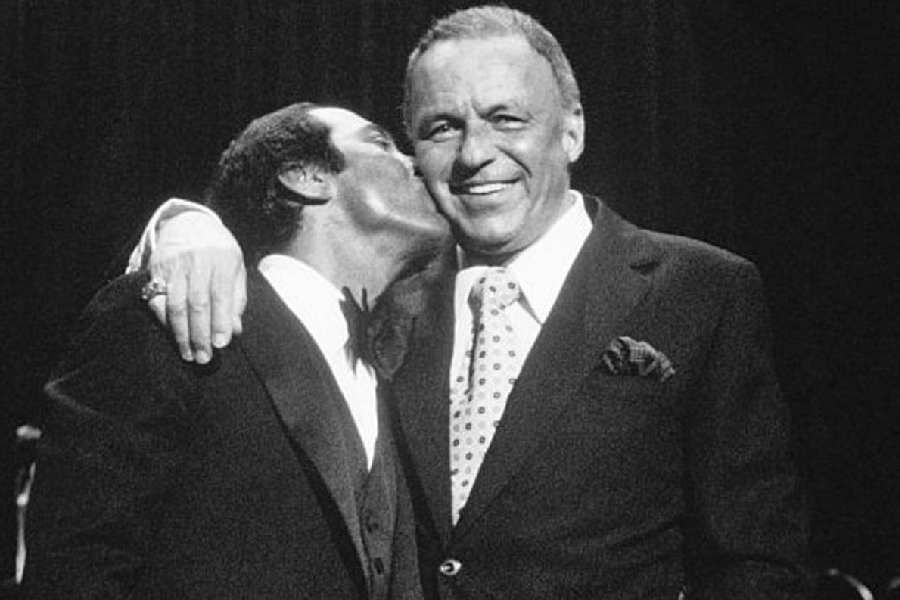Group: Maroon 5
Album: Love Is Like
Rating: *
The greatest ‘mall pop’ band. Make no mistake, many will listen to songs from the group’s latest album, but the beats stick to one’s memory as much as a mix of toothpaste and orange juice. Adam Levine and his band fall back on their formula of throwing in a few famed collaborations and algorithm-driven beats on their eighth album. The absence of pop nuggets like Moves Like Jagger and This Love is felt, yet this genetically engineered setlist will live among us while we shop for a pair of jeans, sneakers, and sunglasses, thanks to tracks like the opener, Hideaway.
Why should music be complicated, Levine would argue? He has a point. The counter-argument is, why should he fill his voice with pain all the time? Despite the falsetto hype and help from Lil Wayne, cheesy is an apt word to describe the title track. A 46-year-old aiming high and hard to sound as if Maroon 5 was Nsync attracts a loud ‘sacre bleu’. Our love is like drugs, and I had suitcases full of it, sings the man.
Things go downhill with All Night. The endless stream of oh-oh-oh and the 80s-style sax are far more entertaining than hearing Levine sing: We were toxic, we were cursed Every time we tried, never worked.
Even Blackpink rapper Lisa can’t save this album as she puts in a guest appearance on Priceless. The closest the group comes to rescuing the album is on Burn Burn Burn, a head-bopping narrative about heartbreaks: A glutton for punishment/ I think I know what you meant.
Mr Levine holds the listener at gunpoint with his falsetto, but he has forgotten how to load the gun. Make an escape.

Jon Batiste
Artiste: Jon Batiste
Album: Big Money
Rating: *****
Jon Batiste is a fine example of an artiste who can’t stop thinking because of the depth he possesses of music history. On his previous studio album, Beethoven Blues, he dived into the classical music composer’s work to offer brilliant improvisations; this time, he returns to his jazz and R&B roots.
He bounces between genres effortlessly, creating music that’s highly enjoyable and interesting, especially if you are the kind who finds comfort in Otis Redding, Sam Cooke, or Bobby Womack.
Only 32 minutes long, the nine-track album is a celebration of folk, funk, blues and gospel. Lonely Avenue, the duet with Randy Newman, contrasts whisky-soaked vocals with one that’s full of sheen. Even if you have a girlfriend, you would feel like packing yourself in a room, playing the song on loop: Now my room has got two windows/ But the sun never comes shinin’ through/ You know it’s always dark/ It’s dreary since I broke it off with you.
He does justice to his credentials — New Orleans roots, Juilliard graduate and a bandleader. Petrichor has a hypnotic groove, besides being compact and raw. This is, in fact, the story of Big Money — songs with strong storytelling mixed with music that’s intimate. There is nothing bombastic.
On Lean On My Day, featuring Andra Day, warm piano chords greet the listener, and there is a sense of effortlessness in the duet: You can lean on my love when there’s no one to hold you/ I’ll lift you up, never run from what you’re going through/ I’ll be the bedrock.
There’s clearly a lot of thinking about the roots of all the music he has incorporated here. It’s a reminder of why artificial intelligence will not replace musicians with a clear understanding of music. The music is genuine, whether in its delivery or recording style.

Artiste: Teyana Taylor
Album: Escape Room
Rating: ****
New beginnings, old goodbyes. Her first album in five years has plenty to unpack — divorce from NBA player Iman Shumpert and a new life with Aaron Pierre, who she is apparently dating. And then there is her fast-evolving acting career. The pathos-drenched voice delivers a gritty 22-track album. Interspersed monologues add a memorable touch.
On Fire Girl she highlights sentiments that Beyonce did on her 2016 album, Lemonade: Am I wrong for choosing violence?/ Am I wrong for breaking windows?/ Slashing tires, f**king off fire hydrants/ I done reached my boiling point so/ Don’t ask me what’s the point.
The complex album represents a fierce persona full of strength, drama, and joy. Her vocal ability is visible on Long Time in which she finds closure on her marriage: How you gon’ punish a punisher?/ You out here stressing your blessings, boo. She appears vulnerable on Back to Life: Been alone, serendipity burned out/ ’Cause when you home, it feels empty somehow. But there is also a glimpse of a hopeful future on Pum Pum Jump: I like to be manhandled, even though I’m ladylike/ You can take control, I’ma take your soul.
Taylor continues to be fascinated by R&B and her treatment of the album is also a celebration of the music of Lauryn Hill and Missy Elliott. Sure, the album is a tad personal, but she doesn’t fall back on familiarity for comfort; she pushes her boundaries.

Frank Sinatra (right) with Paul Anka
STORY OF A SONG
■ Artiste: Frank Sinatra
■ Song: My Way
It was 1968 and Frank Sinatra was thinking of quitting the music business. The man was in the habit of quitting the big time now and then. What better song to record than My Way?
But the history of the song is complicated. Claude Francois was a legend in France, and he wrote and performed the original song titled Comme d’habitude, which means ‘as usual’. Back then, it was common for French and Italian songs to be picked up by the English-speaking world.
David Jones, aka David Bowie, was a songwriter, who was employed by music publishers in Denmark Street, London. This was 1968. He translated the original song into Even a Fool Learns to Love. His version was not released.
Meanwhile, Paul Anka had acquired adaptation, recording, and publishing rights for the French song. One day, while having dinner with Sinatra, the legendary singer said he was “quitting the business”. Needless to say, he didn’t.
Anka went back to New York and sat down at his typewriter. Since Sinatra said he was quitting, Anka thought: “The end is near, the final curtain.” It was metaphoric. He started typing away at one in the morning. In four hours, he was done. All set to the music of the French song. Sinatra’s version, which was recorded in one take, was released in 1969. The song ultimately became a favourite of Elvis Presley.
Though it never went to number one on the charts, it remained in the Top 40 for an unprecedented 75 weeks, all the way from April of 1969 through September of 1971.











